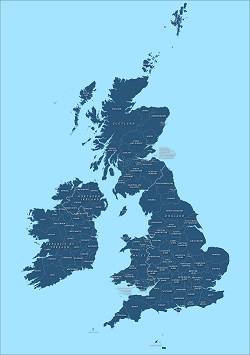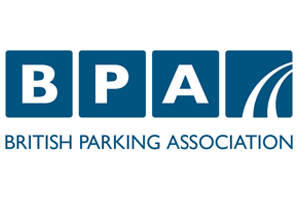Monday Musing: Which government controls what?
I read an interesting article on devolution the other day and the confusing landscape it is causing for the public in Wales. Huw Edwards spoke on the 20th anniversary week of devolution and called for the media to do more to explain who is in charge of what.
This is something we come across time and time again, both in calls from motorists and in discussions with governments about their parking policies.
So which government does what in parking?
Overall Her Majesty's Government of the United Kingdom of Great Britain and Northern Ireland has responsibility for setting transport policies and legislation. The Department for Transport and Department for Communities and Local Government are the main departments to do this, although they must work with the Department of Health regarding management of parking on healthcare sites and the Department for Business regarding consumer law and business law. We also now must consider the Department for Environment, Food & Rural Affairs policies on sustainability and its effects on parking.
We then have three further governments that can accept or reject certain new legislation enacted by the UK Government that may affect parking. For example when the UK Government introduced the Protection of Freedoms Act in 2012, the Welsh Assembly chose to implement the legislation but the Scottish Parliament and Northern Ireland Assembly did not. This had implications for private parking and motorists as we have previously set out in this blog.
The devolved governments have every right to do as they wish under their devolved powers, although some aspects of transport, including railways, safety and regulation remain in reserve with the UK Parliament.
What this means is that regarding conversations on pavement parking or government regulation of private parking we must speak with each government to implement legislation.
Another potential spanner in the works is London due to the historic powers the city has. The City of London Corporation has been granted various special privileges since the Norman Conquest and the Corporation's first recorded Royal Charter dates from around 1067, when William the Conqueror granted the citizens of London a charter confirming the rights and privileges that they had enjoyed since the time of Edward the Confessor. Numerous subsequent Royal Charters over the centuries confirmed and extended the citizens' rights.
One example is that in London, parking on the footway is prohibited except where the highway authority deems that it is safe to do so and traffic signs indicate this. The reverse is true in the remainder of the UK causing confusion amongst motorists and inconsistency in enforcement.
Of course a pavement parking ban would be of use not only in London but in other busy cities too, creating safer pavements and footways for pedestrians and easier less congested journeys for motorists.
Local Devolution, for example City Deals in England could empower our big cities and provide integrated transport solutions in a way not seen before except in London. This means that transport and parking policies can be regularly reviewed and tailored to support overarching transport policies and planning.
We have seen this already in Manchester, when the city received some devolved powers some time ago and more recently with the new Mayor. Each Mayor has slightly different powers, each one slightly differently transposed too. They often oversee the public transport within the borders of their territory and implement a transport plan for a more cohesive approach.
There remains a need to maintain some national consistency where it is beneficial for motorists and where there is potential for confusion. In this situation, local authorities must ensure that they communicate clearly to motorists and other road users.
There are challenges ahead, such as Brexit causing the return of certain powers from the EU, but also with further devolution and potential for more Mayoral positions.
However, we are working with local authorities now on the Positive Parking Agenda and will continue to do so. It is an initiative that is working to improve public understanding and the image of parking management by helping local authorities to work together in setting and raising standards, improving communications, encouraging innovation and promoting transparency in the delivery of parking management. This is all about creating a positive parking experience, which is the main subject of our Annual Conference this year, if you haven’t signed up for it yet, don’t miss out!
- Like
- Opslaan










